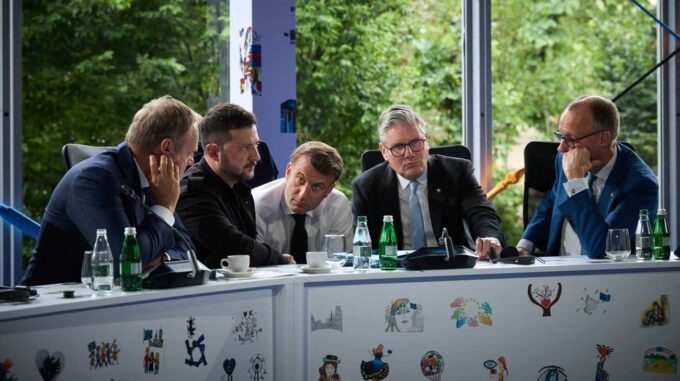Ukraine insists on strengthening the European Union’s sanctions policy against Russia, while the United States remains indecisive, causing concern in Kyiv and among EU partners

According to Reuters, next week the Ukrainian government plans to formally address the European Union with proposals for implementing large-scale and radical measures to isolate Russia in international economic and financial spheres. Sources indicate that Ukrainian diplomats intend to prepare and present to Brussels a so-called “White Paper” — a document with detailed proposals for reviewing the EU’s sanctions policy, including focusing on the seizure of Russian assets with further transfer to Ukraine. Additionally, plans include introducing secondary sanctions against foreign companies that purchase Russian oil or aid the Kremlin in circumventing existing restrictions. Such a step, according to sources, would be unprecedented for the European Union, as Brussels has previously refrained from applying measures of such scope. The internal 40-page document, which is to be disseminated to all 27 EU member states, calls for adopting a “more aggressive and autonomous” sanctions strategy. The main proposal is to change the decision-making procedure — moving from unanimity to majority voting, which would reduce the risk of blocking sanctions by opponents in certain states. The document also criticizes the lack of active US participation in joint international sanctions initiatives. Specifically, the “White Paper” notes that the administration of former President Donald Trump effectively withdrew from the process of coordinating global sanctions efforts. The authors emphasize that Washington ceased participation in many intergovernmental platforms responsible for monitoring sanctions enforcement, including adherence to price caps on Russian oil. The document states: “Washington suspended participation in monitoring compliance with price caps, disbanded the federal task force that fought sanctions violations, and the expert personnel capacity in this sphere has been significantly reduced.” According to Ukrainian experts and diplomats, this significantly complicates the coordination of international efforts and slows down economic countermeasures against Russia. At the same time, based on analytical assessments of the situation, specialists highlight that Europe has more than enough leverage to keep pressure on Moscow. According to Davis Craig Kennedy, a Russian energy expert at Harvard’s Center, Europe possesses considerable potential despite the dominance of the dollar in global trade and the difficulties in fully compensating US sanctions. “Europe has many more tricks up its sleeve than it appears,” he notes. He further states that the ability to prevent the return of investment flows to Russia and to intensify sanctions depends on a consolidated and consistent policy from Brussels. The background of this situation is quite tense. After a conversation with Vladimir Putin on Monday, May 19, former US President Donald Trump unexpectedly declined to impose new sanctions against Russia, undermining Ukrainian and European leaders’ hopes for increased pressure on the Kremlin. This shattered trust in Western unity and raised concerns about whether the US can continue to lead in sanctions efforts. The very next day, May 20, countries such as the EU and the UK decided to introduce additional restrictions against Russia, creating bilateral pressure, hoping that Washington would eventually join and strengthen sanctions policies. Sources from Minsk report that the 18th package of sanctions against Russia, already in development within the EU, could include new measures beyond traditional restrictions on Russian banks. These may involve imposing limits on financial institutions of non-EU states that actively support Russia’s defense industry and military, further increasing Russia’s economic isolation from the international community. Finally, expert community members point out that despite the challenges and US indecisiveness, Europe has every chance to consolidate its position and establish a powerful sanctions system that will give Moscow no concessions in the near future. Such a strategy would be a logical step in the ongoing effort to strengthen Russia’s international isolation and support Ukraine in its confrontation with the aggressor.

